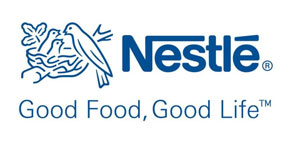
Home > Product Range > Industrial Process Equipment > Rotary Process Equipments > Process Reactors
Process reactors are specialized vessels used for conducting chemical reactions under controlled conditions, essential in industries such as pharmaceuticals, chemicals, petrochemicals, and food processing. These reactors are designed to optimize reaction efficiency, maintain product consistency, and ensure safety during the reaction process. Known for their versatility and durability, process reactors are indispensable for industrial-scale manufacturing and research.
Ascent Machineries & Engineering Services Ltd., based in Goregaon, Mumbai, India, is a leading manufacturer, supplier, and exporter of high-performance process reactors. With a presence in over 80 countries, we provide customized solutions that meet stringent international quality standards, ensuring maximum productivity and cost-efficiency for our clients.

Process reactors are engineered to handle complex chemical reactions with precision and safety.
| Model | Capacity (Liters) | Material | Price (₹) |
|---|---|---|---|
| Compact Reactor | 500 | SS304 | 5,00,000 |
| Standard Reactor | 5,000 | SS316 | 18,00,000 |
| Advanced Reactor | 50,000 | Glass-Lined Steel | 45,00,000 |
Market Comparison:
Built to withstand high pressures and temperatures for prolonged usage.
Optimized designs ensure minimal energy consumption during reactions.
Suitable for a wide range of industrial processes, from synthesis to refining.
Equipped with advanced safety features such as pressure relief valves and automated controls.
Tailored designs to meet specific industrial requirements.
Robust construction minimizes maintenance needs, reducing downtime.
| Parameter | Details |
|---|---|
| Capacity | 50–100,000 liters |
| Pressure Range | Up to 150 bar |
| Temperature Range | -50°C to 400°C |
| Material Options | SS304, SS316, Hastelloy, Glass-Lined Steel |
| Sealing Mechanism | Mechanical or Magnetic Seals |
| Heating Options | Electrical, steam, or oil-heated |
| Reaction Types | Batch, Continuous, Semi-Batch |
| Country of Origin | India |
Ideal for processes requiring precise control over reaction times and conditions.
Designed for high-volume, uninterrupted production.
Equipped with a jacket for precise temperature control.
Resistant to corrosion and suitable for sensitive chemical reactions.
Cities: Mumbai, Delhi, Chennai, Bangalore, Dubai, Kuala Lumpur, and more.
Countries: India, UAE, Malaysia, South Africa, Kenya, UK, USA, Australia, and Vietnam.





Yes, our vessels are designed to withstand up to 10 bar pressure.
Absolutely. We offer tailored solutions for capacity, material, and agitation type.
Industries like pharmaceuticals, food processing, and petrochemicals gain significant efficiency and quality benefits.
Yes, we offer installation, training, and 24/7 technical support.
Typically, delivery takes 4–6 weeks, depending on specifications.
Contact Ascent Machineries & Engineering Services Ltd. today for cutting-edge process reactor solutions. Transform your operations with our state-of-the-art equipment designed for efficiency and reliability.
ASCENT MACHINERIES & ENGG. SERVICES Shop No. 2, 1st Floor, Nalanda Shopping Center, Station Road, Goregaon West, Mumbai - 400062, Maharashtra, India
+919819063898
sales@ascentmes.com
© 2025 Ascentmes.com. All rights reserved. Designed by Vebiotic Web Solutions Marketing by Adinads